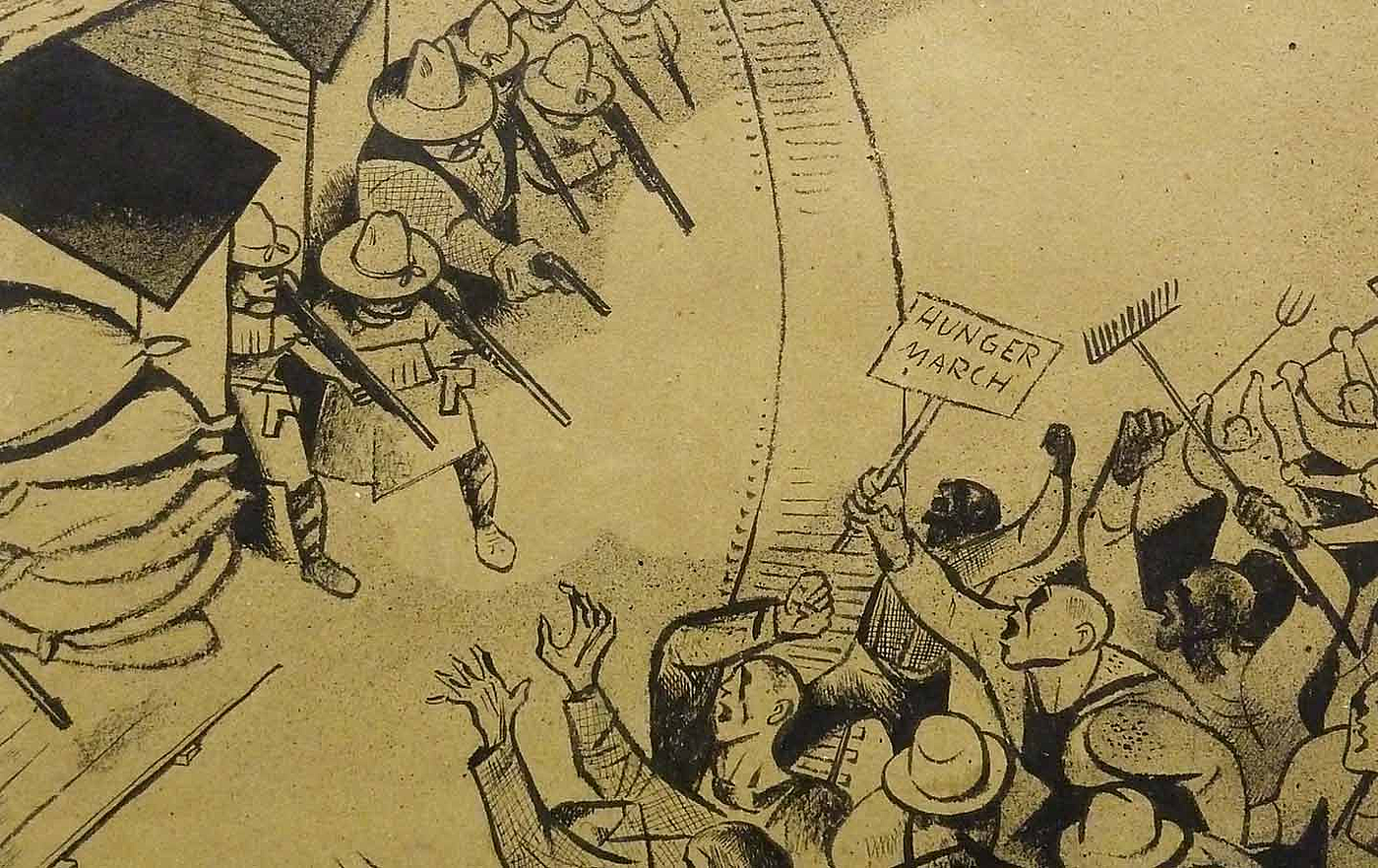
Big business monkey
Nothing's funny
Big business monkey
Everything's money
He sold cheeseburgers with that cashier’s smile
He runs his house like a burger king manager
And the only jokes he knows are the ones that'll put you down
Big business monkey
He'll take over the world
And you can have it now
But you can't take it with you
And everything you cling to
Will rot
And everything you do
Will be forgot
By everyone you ever tried to
Impress
— A song by Daniel Johnston
(listen, you won’t regret it)
Hey friends!
I don’t have a regular post this week, because this is not a regular week. Instead, in solidarity with the protests, I want to offer one short thought that’s been on my mind.
I have a lot of fun theorizing about business strategy. It’s a satisfying intellectual challenge. But there’s also a voice in my head that tells me if I’m not careful it could perhaps be slightly... bad?
Hear me out.
I think capitalism is basically good despite its flaws. But are powerful monopolies a feature or a bug in the system? Should we aim to build more of them? Is spreading knowledge of how to accumulate market power the highest use of my energy?
Throughout history, market power has usually been controlled by white men. And they have not often used that power virtuously. Instead, they have mostly failed to support the development of power in marginalized communities, and at times even actively suppressed it.
For example, when I read about how it’s strategic to limit the “bargaining power of suppliers” from Michael Porter, it’s impossible to not think about the history of collective bargaining in America, and how it could have helped millions of workers begin to accumulate a bit more wealth and stability, which would have had compounding effects over time, and resulted in a much more equitable society today. But the business community leveraged its power to resist the labor movement, and unions were decimated. It’s impossible to not think about the disproportionate impact this has had on black Americans, who have too often been denied management opportunities.
Of course, unions are not without drawbacks! In fact, police unions seem to be a major obstacle to solving police brutality. But most unions focus on getting workers paid more and having reasonable working conditions. Many countries have found a way for management and labor to work this out, but in the US, business owners traditionally have taken a loud and “principled” stand against the downsides of anti-competitive behavior from labor, while happily glossing over their own anti-competitive (i.e. “strategic”) and rent-seeking behaviors.
Many of the world’s biggest challenges would be less dire if corporations wielded their power more responsibly, with a more long-term perspective. The earth’s climate continues its gradual slide towards catastrophe. Women overall earn ~81% what men earn, and black women earn just 61% of what white men earn. America has the most expensive healthcare system on earth, but ~45,000 people die preventable deaths every year due to lack of access, and thousands more are forced into financial ruin.
I know by mentioning these problems, I risk offending some of you who may sense that you disagree with me politically. My goal here is not to accuse you of being a bad person. I’m just writing honestly about why it feels so hard to write about strategy as if it’s business as usual this week.
And besides, I’ll be the first to acknowledge that there are many good things that have come from capitalism.
Think, for instance, of the trillions of dollars spent developing the technological infrastructure that enabled the world to witness the murder of George Floyd last week. Because of that, I’ve seen more motivation to prioritize racial justice than any time I can remember in my life.
By almost every measure we have, it’s clear that capitalism really is a powerful brute force driving human flourishing, unfair as the returns may be. I believe through some combination of smarter, more humane government policy and generational power change, we can harness the force towards more equitable ends.
The thing is, market power seems to be inevitable. Businesses are like cities — some positions are just destined to be big. Natural monopolies are a real thing. So the point isn’t to resist power in business, but to study how it works, to have reasonable guardrails in place, and to increase access to knowledge so that more entrepreneurs can do their thing and grow the pie.
When I was a kid growing up in Arkansas, I had no connections to Silicon Valley or Venture Capital or anything like that. The only reason I stumbled into this world is because somehow when I was 20 I found a link to one of Paul Graham’s essays, and my world instantly and permanently changed.
Obviously my own work does not reach that level yet. But that’s my goal.
The basic project of Divinations is to arm the rebels; to afflict the comfortable and comfort the afflicted; to help the next generation of founders — raised on the internet and more diverse than ever before — seize power and use it for good.
That’s why I write.
The Only Subscription
You Need to
Stay at the
Edge of AI
The essential toolkit for those shaping the future
"This might be the best value you
can get from an AI subscription."
- Jay S.
Join 100,000+ leaders, builders, and innovators

Email address
Already have an account? Sign in
What is included in a subscription?
Daily insights from AI pioneers + early access to powerful AI tools








Comments
Don't have an account? Sign up!